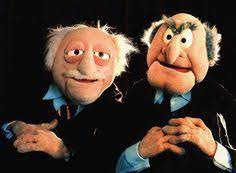
Relevance as a Choice
Let’s say someone wanted you to read a book about truth.
“Geez, you might say. That’s a broad, nebulous subject. Could you give me a little more information?”
But even with more information, you may not be interested in reading such a book. First, you may not like to read. Second, you may think that “truth” is not a subject you’re interested in. In other words, the book and its subject are not relevant.
A dictionary defines relevant as “bearing upon or connected with the matter in hand; pertinent.” But when I think of relevant, I always think “relevant to me.” In other words, relevance is subjective, denoting what interests me. What’s relevant to you may not be relevant to me, or vice versa.
Basis of Relationships
Truth, of course, is relevant to everyone, even though it may not be acknowledged. Among other things, it’s the basis of meaningful human relationships. If someone intentionally doesn’t tell us the truth, we would have trouble having a relationship with that person.
I mentioned in a blog a couple of weeks ago that I had read an article entitled, “7 Interesting Reasons Why People Don’t Go to Church.” And among those reasons was one that didn’t surprise me: “They Deem the Church Irrelevant.”
Relevance is at least partially determined by what’s important to us. If you were to do a poll of the people who say that church is irrelevant, 90 percent, I believe, would answer that church/religion/God is “not very important” to them.
Many would say that social media, sports, video games, celebrities, TV shows and the like are what’s relevant, and they spend much of their time paying attention to all these interests (none of which are bad). And they know enough about these subjects to decide whether they’re important to them.
Grammar-school Level
The problem with religion is that, according to studies, many people’s knowledge about religion hasn’t moved beyond the grammar-school level. What’s more, religion is a taboo subject in “polite” society.
“The United States is one of the most religious countries on earth, but Americans know nothing about religion – their own or the religions of others,” said Stephen Prothero, a professor in the Department of Religion at Boston University at a 2007 forum.
Another Forum participant, Michael Cromartie, who made a career of educating journalists about religion, described the reaction of some of his students in his classes about religion.
“When I would say things like ‘in Matthew, blah, blah, blah,’ the students would get that look like they sort of knew what I was talking about, but they really didn’t. I realized they were thinking, “Matthew Perry? From “Friends.”? …So, I gradually realized I have to explain this stuff: Matthew, which is one of the four Gospels, which are books in the New Testament, which is a scripture in Christianity, which is one of the world’s religions….”
But religion is not just about what you know or don’t know. More importantly, it’s about who you know and who you love, if you get my drift.
Not-To-Do List?
I recently saw a video in which elderly married men were asked what marriage means to them. One man answered, “It’s a to-do list.” And that, unfortunately, is like the views of many people about church: It’s a to-do list, or better, a not-to-do list.
If you take love out of a marriage, that’s what you have. And if you take love out of religion, those to-do and not-to-do lists are what you’re left with. But despite the perception of many, love of God and neighbor are the heart of Judaism and Christianity.
And despite deep flaws and histories that never measure up, those religions, including the Catholic faith to which I belong, epitomize those values to a degree not found anywhere else in modern life.
Boiling it down, relevance is a choice that is made by people sincerely searching for God.





